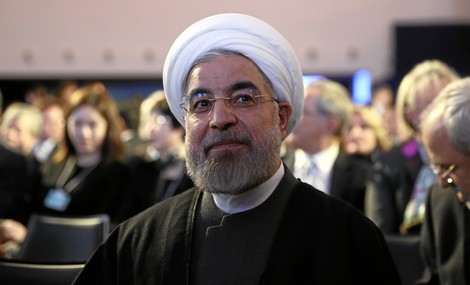Your podcast discovery platform
Curious minds select the most fascinating podcasts from around the world. Discover hand-piqd audio recommendations on your favorite topics.

piqer for: Climate and Environment Globalization and politics Health and Sanity
Mona Silavi is a human and women’s rights activist from the Ahwaz region in Iran. She obtained her bachelor in psychology and specialized in children and adolescence psychology at Damascus University, faculty of psychology and education. She holds a master degree in good governance and human rights in MENA region from Ca’ Foscari University in Venice. She started her activism in Damascus as member of Ahwazi Arab student association. Mona Silavi is a Project Officer at the Unrepresented Nations and Peoples Organization (UNPO) and is the coordinator for topics concerning freedom of religion and belief. She is also a spokesperson of the Al-Ahwaz Democratic Solidarity Party (DSPA). Since 2014 Ms Silavi lives in Belgium as a political refugee
Why Has The Iranian Public Remained Silent On Syria?
I am originally from Iran but studied in Syria and left Damascus in late 2012, therefore I have followed the Syrian conflict really closely. I've always been concerned with the fact that the Iranian people have stayed silent about what is going on in Syria. Now, finally, I saw this article which explains it all. The Iranian government played a major role in the Syrian war that has been raging for the past seven years. Syrian people with the hope for a democratic future and inspired by the Arab spring took to the streets, but unfortunately found themselves helpless in their own country that soon turned into a playground for international players. What's the Iranian public opinion on what is going on in Syria? Where do Iranians stand in relation to Iran’s foreign policies, most importantly in Syria?
While Iranians never miss an opportunity to vocally express disapproval with their government (as in the recent hijab protests), the country’s foreign policy in Syria (and elsewhere) appears to be an exception. In some ways, this silence borders on complicity. Even when Iranians do express disdain over their government’s actions in Syria, they do so in a largely private capacity, and for economic reasons, rather than a concern for human rights.
Hamid Hashemi gives a comprehensive analysis explaining why Iranians remained silent by dividing the influential parties in the Iranian political sphere: “Pro-Government Iranians, nationalist, reformists, lefties and “Hardline” Shias”.
According to the author, the part of Iranian society who has sufficient political knowledge and is human rights-conscious does condemn Iran’s intervention and its destructive influence in Syria.
Against the backdrop of these realities, only one question remains: Who in Iran is left to speak up against the war in Syria? The answer is that only a few idealistic human rights activists (who have a feeble political constituency) have lent their voices in opposition to the war.

highly interesting piq! many thanks, mona.